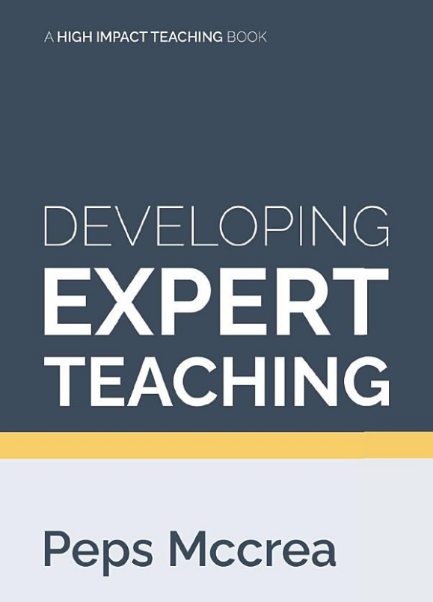
When was the last time you engaged in teacher professional learning that truly made a difference for you and your students?
We understand that professional learning and development play a pivotal role in school improvement. So why not harness this powerful resource more effectively?

Photo by Scott Graham on Unsplash
Recently, the Teacher Education Expert Panel released the final report on the improvement of the Initial Teacher Education (ITE) program in Australia. This report was a response to the 2022 Teacher Workforce Shortage Roundtable, which identified ITE as a key lever to address teacher shortages across the country. Among its recommendations is the establishment of “core content for ITE programs” to ensure that every teacher is adequately prepared for the classroom and equipped to support students effectively. The core content comprises the brain and learning, effective pedagogical practices, classroom management, and responsive teaching - practical and essential expertise for all teachers.
Ross Fox, the Director of Catholic Education for the Archdiocese of Canberra and Goulburn, responded to the report in a Sydney Morning Herald editorial article. The Archdiocese of Canberra and Goulburn has initiated an evidence-based professional learning program for teachers called 'Catalyst.' This program aims to implement an evidence-based teaching approach, supported by high-quality professional learning and curriculum resources. It empowers teachers and leaders to deliver effective whole class instruction, drawing on the Science of Learning and the Science of Reading, providing comprehensive support through professional development and coaching. Fox's powerful quote in the article, “[as a result of Catalyst] we now understand clearly that the teacher is the most important learner in our system and the education of the teacher is essential to the quality of learning that we can provide,” highlights the importance of treating teachers as the most crucial learners, which is often overlooked in other professional development programs.
 In this article, I’d like to delve into how we can enhance professional learning and development for ourselves and those we lead. Specifically, I'll focus on Peps Mccrea’s model of professional learning outlined in his book "Developing Expert Teaching," a topic he recently discussed with Ollie Lovell on the Education Research Reading Room (ERRR) podcast. Peps’ essential ingredients for effective PD are: get it, see it, try it, keep it (supplemented by 2 wider ingredients: fix it and own it). Here's a summary of these core elements:
In this article, I’d like to delve into how we can enhance professional learning and development for ourselves and those we lead. Specifically, I'll focus on Peps Mccrea’s model of professional learning outlined in his book "Developing Expert Teaching," a topic he recently discussed with Ollie Lovell on the Education Research Reading Room (ERRR) podcast. Peps’ essential ingredients for effective PD are: get it, see it, try it, keep it (supplemented by 2 wider ingredients: fix it and own it). Here's a summary of these core elements:
Get it - Engage deeply with research to build a solid understanding of 'what good looks like' in the classroom.
See it - Similarly, immerse yourself in models and exemplars to develop a thorough understanding of effective practices.
Try it - Practice new teaching methods in a simulated classroom setting, with ample opportunities for feedback.
Keep it - Solidify these new practices by focusing on habits, being explicit, and considering the classroom environment.
For school leaders, it's vital to remember that Professional Development is a powerful tool to drive school improvement. Thoughtful design of PD programs is essential to support teachers in developing their expertise in the classroom. Peps' model provides a robust framework to ensure teachers grow incrementally and have the best chance of sustaining positive change.
Teachers, if your school doesn't fully recognize the impact of Professional Development on improvement, you can use Peps' model to design and implement your own PD. However, to maximize efficiency, it's crucial to build a supportive network. Reach out to other teachers at your school or through various networks to create a grassroots community of practice centred around effective PD.
I highly recommend Peps Mccrea's book "Developing Expert Teaching." It is succinct and highly readable, making it essential reading for teachers and school leaders interested in maximizing potential through Professional Development. Additionally, I suggest you listen to Peps' conversation with Ollie Lovell on the ERRR podcast.
References/Links:
https://catalyst.cg.catholic.edu.au/
Developing Expert Teaching: A practical guide to designing effective professional development, for others and ourselves https://amzn.asia/d/1u9NeRC
https://www.ollielovell.com/pepsmccrea2/


